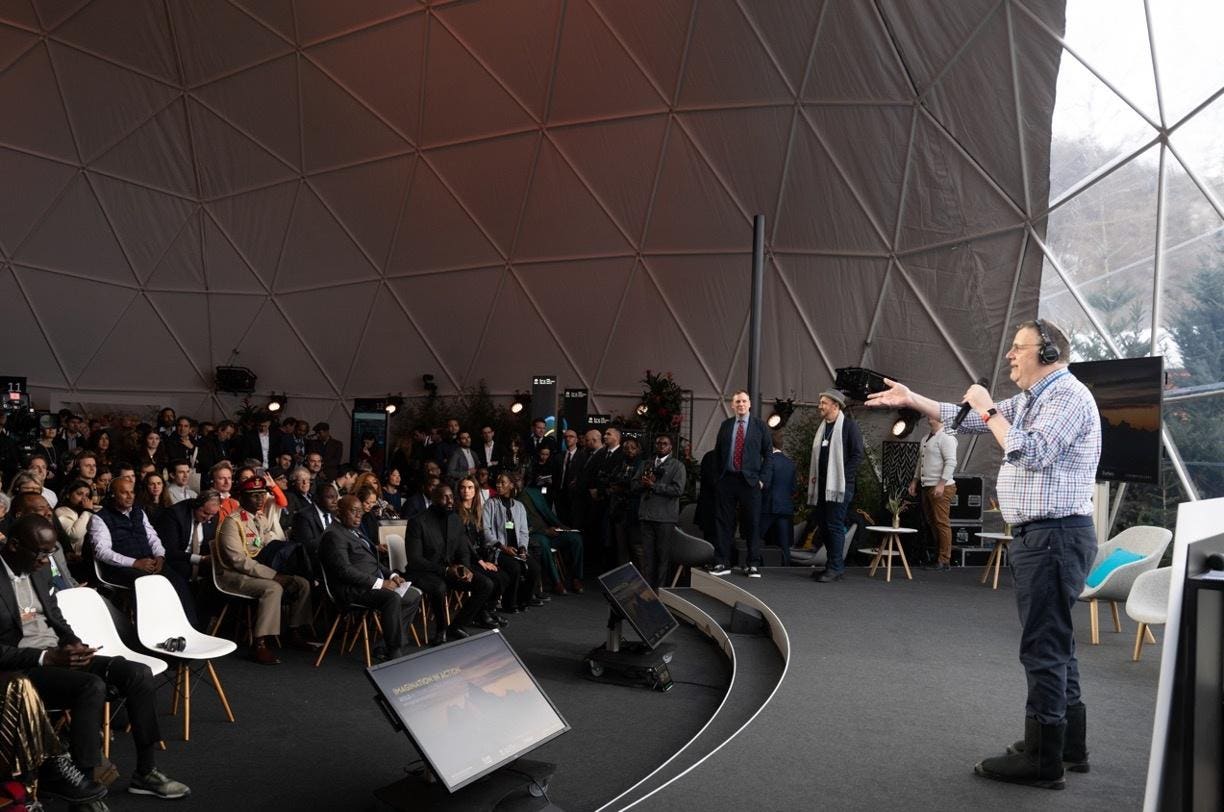Jeremy Wertheimer Speaks About The Power Of AI For Today’s Youth

Jeremy Wertheimer presenting, President of Ghana in the front row
John Werner
We had a lot of great speakers and prominent people mixing at Davos in the 500 meter square (56,000 sqf) TCS Dome facility on January 17, 2024 at Imgination in Action – Bold Actions and Global Progress the theme. One of the most interesting breakout talks, to me, came from Jeremy Wertheimer. It was short and good.
We had just finished our 15th Panel of the day. Sir Tim Bernes-Lee was just on stage and I was looking forward to hosting Yann LeCun the 2019 Turing prize winner in our 17th panel. We had ten more panels to go. The 16th panel was of particular interest – we had addresses by the Presidents of Ghana (Nana Akufo-Addo) and Rwanda (Paul Kagame), and Nelson Mandela’s grandson Kweku Mandela among others. There was a five-minute gap while we waited for the two presidents and their teams to enter the venue. I gave Jeremy the microphone and asked him to give a 5-minute talk about some of the core principles that should be in our visions of AI for the future.
Wertheimer has some pretty integral credentials in exploring AI over the past decades. He started at the MIT AI lab in the 1980s, studying big names like Marvin Minsky, got his PhD in ’96, and started a company called ITA Software. Now he’s involved in startups and has an ear to the ground on what’s happening as artificial intelligence finally takes off.
So what did Jeremy have to say?
First of all, he was talking spontaneously, because I pulled him up on stage.
But he did a great job, talking about the importance of having responsibility for serving a new generation of young people with AI.
“We’re fine on AI, we’re doing a good job,” he said.
The challenge, he suggested, is for governments and institutions, and the challenge involves how to use what we have.
Noting the old adage that change happens slowly and then very suddenly, he provided the example of AI giving every child a high-quality tutor as a resource and, for example, job coaching after they leave school.
“All of the economic systems work well,” he said. “We will optimize economically, but who’s looking out for the kids?”
Science technology concept. Education technology. EdTech.
getty
He pointed to the release of GPT4 on March 14, which the MIT people know as “Pi Day,” as a flashpoint for this type of progress.
“I said to my team: let’s see what happens,” he said.
Promoting the idea of quick curriculum reform and adding AI into the mix soon, he said institutions are slow to change, but the technology is changing rapidly.
“Don’t wait,” he said. “We have the opportunities now.”
In addition, he mentioned teaching things like critical thinking and citizenship.
But the gist of his remarks centered around empowering younger people – instead of just figuring out how to do the same old things in a new way, we should be doing new things for the next generation!
It was inspiring and you’ll see a lot more from Davos in the next little while. But this input from a great name in IT is worth thinking about.
Cambridge, MA – June 21: Jeremy Wertheimer has been an essential figure on the Boston AI scene for … [+]
Boston Globe via Getty Images













